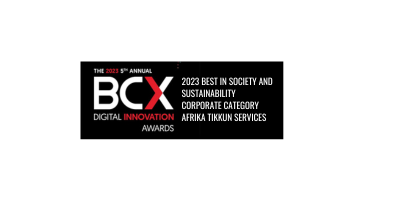At a recent roundtable discussion hosted by youth development group Afrika Tikkun and tech giant Microsoft, business leaders from South Africa’s largest corporations questioned whether the country’s unemployment problem is due to a lack of jobs or a mismatch between the skills that young people have and the skills that employers need. During the dialogue held under the theme Skills Gap, Youth Employability and Employment industry leaders also identified a critical issue that is hindering progress in South Africa’s skill development ecosystem: a lack of coordination and collaboration between employers and those who provide young people with skills. They warned that this lack of collaboration is allowing the skill gap to grow wider.
While much of government policy and efforts by the skills and education sector focus on providing as many young people as possible with a wide range of skills and qualifications, employers are still struggling to fill vacancies in tech, finance and other growing sectors without hiring from outside SA or struggling to retain the small pool of skilled individuals in these crucial industries.
The dialogue revealed that a significant obstacle impeding the country’s workforce development environment was the conspicuous lack of cooperation and coordination among the various stakeholders who are accountable for providing the youth with necessary skills and employment.
Distinguished delegates from leading companies, along with various SMMEs and recruitment firms shed light on the urgent imperative for a radical shift in perspective toward collaboration and skills-focused approaches.
The consensus among industry players is that harnessing the power of supply chain interactions and industry-wide collaboration is paramount in addressing the pressing skills gap challenges faced by the nation. They also committed to tackling employment challenges as a collective.
“Those who want to end the cycle of youth unemployment may need a change in attitude and perspective to get to the bottom of its skills gap challenges that continue to feed into rising unemployment,” said Onyi Nwaneri, deputy CEO of Afrika Tikkun.
The discussions held during the roundtable highlighted the necessity for employers to reassess their requirements, placing greater emphasis on the value of skills rather than solely relying on formal qualifications.
“As we see slight improvements in some aspects of youth unemployment in SA, this is a crucial opportunity for employers to rethink their approach to workforce development,” said Nwaneri.
“By embracing a mindset change and acknowledging the value of skills, employers can actively contribute to bridging the gap between available resources and the needs of industries affected by the skills shortage.”
A move towards purpose-driven skills development
Despite thousands of young people completing skills development and learnership programmes, the rate at which these graduates were being absorbed into the workforce was severely lacking.
According to a recent study by two skills development groups The Collective X and Harambee, more than 28,000 digital and ICT jobs are outsourced to other countries in South Africa, which amounts to R8.5bn in lost export revenue.
Additionally, there is currently a demand for around 66,000 digital and ICT jobs forecasted for the next year, of which around 44,000 are entry-level jobs suitable for the youth. But does South Africa have the skilled youth to fill these posts?
Young people need to change their attitudes towards education and skills development by embracing the opportunities presented by new technology and globalisation.
Employers likewise need to look for skills rather than formal qualifications in order to give opportunities to more capable and eager young minds to participate in the evolving economy, delegates said.
In an effort to foster employer collaboration and sustainable growth across industries, AT plans to facilitate further initiatives in the coming months. “We hope this will be the start of a collaborative movement comprising employers, educators, and organisations dedicated to addressing poverty, inequality, and employment challenges in SA.
“By leveraging the power of unity and collaboration, AT aims to create a thriving ecosystem that empowers young individuals and uplifts communities,” concludes Nwaneri.


